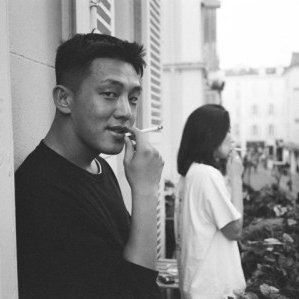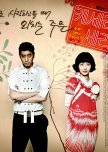
Esta resenha pode conter spoilers
There is something about Eric Mun making douchebags likeable and endearing.
Que Sera, Sera was an interesting drama. It tended to show the dark fringe side of someone's character. Even someone as innocent and naive as Eun-soo got darker and more stubborn as the series progressed. It’s something one should expect in a drama about jealousy-fueled emotional abuse, the hard part of love and money. That’s something that’s consistent throughout the series. It can be off putting to some viewers who may have expected more straight-foward romantic melodrama. And sometimes the story does tend to get wishy-washy at times which didn’t help things, but this was a well made - excellently directed - drama headlined by 4 actors who held up their weight to carry the story along. Kang Tae-joo is the main character we follow, eventually turning to Eun-soo as the series progresses, and quite frankly, he’s not a great person. Tae-joo is belligerent, rude and arrogant. He’s not nice to the lovely Eun-soon and messes around with her several times, and he's only really driven by having a nice, money-filled life but he's also someone who learned from his actions, has deep regrets and thoughts and becomes a better person despite his actions saying the opposite. The story of Shin Joon-hyuk is acinating. He is quite clearly the better person over Tae-Joo but due to his insecurity and jealousy towards Eun-soo and Tae-joo’s past relationship, he is just as manipulative and spiteful as the bastard Tae-joo. Cha Hye-rin is an odd duck. She is initially interesting with her unique ways of living her life but she is prolly the weakest out of the four. There isn’t a lot of character depth compared to the others. The acting was strong with Jung Yu-mi standing out to me. She had to portray a seemingly simple character that changes naturally due to her environment. She turns from someone who’s innocent, as Tae-Joo calls her, to someone who’s more knowledgeable about life, responsibility, pessimistic about love and more nihilistic in general. There are a lot of nuances that need to make this work naturally.The story wasn’t perfect. There are some moments that are awkward and doesn’t really make a ton of sense - like Tae-joo and Eun-soo’s reunion before they spit again - but it's a show with a lot of twist and turns that are compelling, mostly.
Esta resenha foi útil para você?
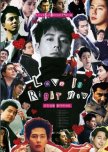
Esta resenha foi útil para você?
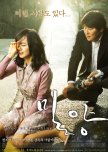
Esta resenha pode conter spoilers
Jeon Do-yeon as Lee Shin-ae goes through an enormous amount of pain. We are introduced to someone that misses her deceased husband but has passed the stage of agony, only for it to come back when another death comes her way, in a truly tragic way. And we bear witness to the process. Grief. Raw, ugly grief that comes in all different ways. Mostly ways in which were uncomfortable to watch, physically harmful for those involved and, occasionally, amusing in its own sort of way (specifically due to the irony of the situation). Alongside her is the cheerful and helpful Kim Jong-chan (Song Kang-ho), acting as the good samaritan. He, too, goes through some changes of his own. His intentions are very self centred but he too finds peace in God, more so than Shin-ae could, despite her best attempts and in the end chooses to be the good guy and not take advantage of a deeply depressed, grieving mother. There isn’t a lot of joy in Secret Sunshine. There is an endless wave of hurt and visceral emotion, the kind that gets stuck in your throat and you’re in pain at the mere thought of. But there is some solace in the ending. Because despite everything, there is light at the end of the tunnel. No matter how you interpret something as simple as the rays of sunshine. Esta resenha foi útil para você?

Esta resenha pode conter spoilers
This could’ve been yet another quasi-snuff film, instead we get a cult classic
Right, we don’t need yet another key observation regarding the graphic violence, both phiscially and sexually, in the film. But what does need to be brought to attention and be a bigger talking point is how hilarious Ichi The Killer is at times. I’m serious as well. The film blends the tone differently depending on where in the film but in the final scenes, the climax of the film has some brilliant comedic moments. Kaneko’s son booting Ichi on the floor was a legitimate laugh out loud moment. And the actual stand-off between Ichi and Kakihara is very cartoonish. Yet another big laughing moment was Kakihara trying to bring an injured Ichi to his feet, only for Ichi to collapse under the pain once more, much to his disappointment. It’s purposely lacklustre rather than being a big dramatic fight to the death; it’s bold and admirable in that way. Enough about Kakihara and Ichi, what about Jijii’s muscular body? I’m dead.Esta resenha foi útil para você?
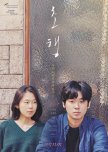
Esta resenha pode conter spoilers
Looking at Kim Dae Hwan’s filmography, I see that he had an appearance in the Sageuk, Jang Hee Bin and this is his second film (first being with him writing behind it). It’s clearly a cheap production with a hand held camera for even the tracking scenes but the amateurish camera work adds credibility to the realistic story of two soon to be parents that are forced to meet each other's parents, both of whom have a tense relationship with. There is a bit of a social difference between the two but that doesn’t play too much into the story, only serving to put a slightly wider wedge between Ji Young (Kim Sae-byuk, The Woman Who Ran) and Ji Young’s mother, who pushes Ji Young into doing things that she can brag about to her friends. And likewise for Su-hyun (Jo Hyun-chu, Inspector Koo) and his father, only the difference being that his verbally abusive father thinks it's a step to being a man, likely revealing why the son doesn’t see his family. The family greetings turn from pleasant to awkward very quickly. But the couple are great together. Both are mature and will talk things out when there are disagreements. Both are understanding when it comes to each other’s families. And then in the end, they were happy in their fates, just walking among the nightlife of the city. Esta resenha foi útil para você?
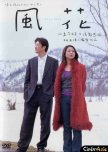
Esta resenha pode conter spoilers
A suicidal road trip taken by a drunken ex-civil servant (Asano Tadanobu) and a depressed bar hostess (Koizumi Kyoko) proves to be threputic and life changing but it takes a while to get there. There is drug taking (sleeping pills, mind you), painful reminiscing and drinking. Lots of drinking. The flashbacks peel back the layers of our characters and what led them to this path, doing it in a backwards manner similar to the structure of insomnia, which only added to the tragic events. Eventually we get a happy ending to the story. A mother changes her life and gets her kid back while a drunk feels satisfied for the first time in a long time without needing the influence of alcohol. I like to think that they eventually would meet up again and become happy together but being happy separately is just as fine an ending as any. Esta resenha foi útil para você?
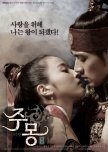
O Livro dos Três Han: O Capítulo de Jumong!
1 pessoas acharam esta resenha útil
Esta resenha pode conter spoilers
Wow, I did it! I completed all 81 episodes. A daunting task initially but the time really flies by once you begin it. Now other sageuks lengths - 40-50 episode spans - will seem easier. And I suggest that people do the same. Apply it to family dramas as well. Jump right into the deep end if you have apprehensive thoughts about long dramas. It’ll make everything else seem easier. Of course, they will have to be great shows with fantastic, strong storytelling and characterization which Jumong excels at. I’m not entirely sure when the episode count was extended but the pacing was quicker as a result. Being initially a 60 episode Sageuk, the typical first arc where they lay the foundation of our main character’s beginnings - which in this case was the story of Hae Mo-su (Heo Joon-ho) and his demise - is done in a shorter manner than an 81 episode Sageuk would’ve devoted to it. There were other examples of that shown throughout Jumong. There was something always happening throughout the episodes. There weren’t many “filler” episodes or ones that didn’t move the plot forward in a progressive way. That ultimately made the show more watchable and enjoyable.
The characters and character development is the strongest part of Jumong. There were plenty of rich, deep characters with plenty of history to work with and explore. Jumong is based slightly on the tales of myths and true reality but it blends it well together to portray a historically accurate show while retaining the mythos of some of the characters, such as the Jumong himself (Song Il-gook).
Let’s start with Jumong. The show first shows him as a bitter disappointment compared to his true Father. Jumong starts to harass a Palace Maid, Bu-young, who is very keen to get away from the situation - presenting himself as a bit of a creep. However, after going through several trials of self-discovery, including finding out his ancestry and meeting the right people to guide him along the way, he forms himself into being a true warrior, an almost deity-like figure who leads his people to constant victory. And because of the myth around him, he is presented with little weaknesses for most of the show. This may stun a few people because often vulnerability is the biggest cause for sympathy by viewers but they opt for the opposite instead. I enjoyed the fresh coat of storytelling, honestly. He had strong bonds with several characters including Hae Mo-su, So Seo-no (Han Hye-jin) and King Geum-wa (Jun Kwang-ryul). All of these relationships are very well developed and represent pivotal character moments for the Jumong character. However, there is one relationship that somewhat failed to be represented, and it’s the one with his first wife, Lady Ye So-ya (Song Ji-hyo). Their relationship was supposed to mirror the relationship between Lady Yuh-wa (Oh Yeon-soo) - their initial meeting was the exact same - but everything after seemed to be very hollow. The writing preferred to use it more as a purpose to keep Jumong and So Seo-no apart due to the historical factor and there wasn’t much else afterwards since they were rarely seen together afterwards. And this made the final arc of Jumong not as effective as a result. A stronger foundation would’ve made the conclusion that much more compelling. Not that I didn’t care or hated it. It was a clear inferior aspect of the show, to me.
On to the second big character arc, I wish to explore - King Geum-wa. The King went through very stages of himself. Introduced as a brave prince, friends with Hae Mo-su, then becoming a strong King that was wise before losing himself to hypocrisy, power and jealousy when he essentially showed his true feelings towards his step-child and his old friend’s cause. He was sympathetic and hateful. The story allowed me, as a viewer, to root for him to re-take power away from the Crown Prince Dae-so (Kim Seung-soo), while being frustrated at his downward spiral of emotions towards Jumong and his Mother. I didn’t expect the character progression to go the way it did but it was one of the most compelling stories of Jumong.
And it would be unfair of me to end this review without discussing the main antagonist, Dae-so. He is surprisingly nicer than history would suggest but his role as the unloved older brother made his actions predictable. He would challenge Jumong every step of the way, trying to kill him before he could pose a threat and then become obsessed with beating him in battle throughout. The development of Dae-so isn’t as complex as the first two, but the strong sense of emotion boils through. His turmoil with the power struggle against the King and flirting with becoming a tyrant before finally maturing into a more sensible, prideful King, as his Father had always wished for him to be, was a subtle development that may go under the viewer's eyes. However, I thought it was a good choice for the character.
One of the main themes of Jumong was the sense of going full circle and mirroring each other. I mentioned earlier in the review about one thing mirroring each other but the three prince relationship of Jumong, Dae-so and Young-po (Won Ki-joon) comes back again with the Princes of Goguryeo. Plus on a minor note, the friends of Prince Yuri reminded me of Oh-i (Yeo Ho-min), Ma-ri (Ahn Jeong-hoon) and Hyeop-bo (Im Dae-ho). Perhaps I’m just projecting but that was my first thought.
This is a long review for a long show and I’ve still not really covered the tragic tale of Lady Yuh-wa or the loveable yet detestable Young-po (and how even he grows and matures) and I only really covered the scale of the romance between Jumong and So Seo-no - which covers a lot of the first half of the show - as well as the other supporting characters that we are introduced to.
But that is Jumong. If you like sageuks with strong characters, a lot of battles and politics, that surprisingly wasn’t the usual drab that the sageuks that cover the Joseon era dramas, and a bit of romance. This does that. Fantastical elements are prevalent but not overwhelming as this is down to earth. The acting was key as was the writing. I find it hard to pick at its weaknesses. Watch it.
Esta resenha foi útil para você?
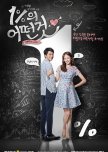
Esta resenha foi útil para você?

Esta resenha pode conter spoilers
I liked this but it's flawed in how it progresses the story, in that it doesn't really do that. Things happen to keep things moving but they don't really change anything to an extent. Any story growth is artifical. The body swapping story is actually really hilarious and the actors involve do a superb job at conveying the comedic elements of it. Although Han Ji-Won does a much better job at matching Hyun-Bin's Joo-won than Hyun-Bin does her character, Ra-Im. Hyun-Bin opts for a generic girl rather than what her character actually is but it's amusing all the same. However, the problem lies, just as it does in all other body swapping shows, they end it far too early and they return to it once too many and I just stop caring. Yoon Sang-Hyun's Oska was a treat to watch but his plot wasn't interesting and Kim Sa-rang didn't hold up her performance. She was flat the whole time. Hyun-Bin's characters tend to be complete pricks, which he is good at doing (so good that he's mostly type casted as one when he has range) and his character is defitely toxic but I totally get his plight. He is unsure of his true feelings and it would be reckless of him to throw away his career and very being to be with a women that he has a connection with but doesn't fully love, yet. His hesitation and confliction was one of the strongest aspects of Secret Garden for me.
Also one of my favourite scenes is the scene where Im Ah-young (Yoo In-Na) brings her "best friend" to a dinner date set up by Joo-Wan, only for it not to be Ra-Im but someone who we've barely being introduced. Hyun-Bin's reactions are genuinely one of the most funniest things I've seen from a Korean TV Series.
Comedy is on point. The characters are all good but the story lets it down in the end.
Esta resenha foi útil para você?
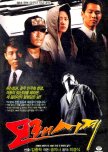
Esta resenha pode conter spoilers
Don’t usually have the patience to watch lengthy K-dramas but Sandglass was just splendid tv. It was quite sad towards the end though as one of the main characters goes down a dark path only to get no real happy ending but it's a logical one so I can't complain. The use of violence was way graphic though. There was more than I was prepared for. I loved how they used real life footage of the Gwangju Uprising and the suppression that followed. It’s one of the most famous parts of the show so I expected it to be at the end, the climax, but it comes out of nowhere. I’m currently reading books on how the time links in with Korean cinema & knowing the background of it all makes it very daunting to watch. The stuff with the Samchung Camps was frightening to watch too. That was fucked up shit. It was an interesting commentary on society of the time though. Would recommend if you're not seen it already. The story was a masterpiece and the acting and writing was a perfect accessory to it all. While it's not a 10/10 because some of the Gangster Plot lines span its wheels a bit and felt a bit boring at times, this was a show that hooked you into each of the 4 main characters, regardless of their actions and motivations, which weren't exactly the most audience friendly. Park Tae Soo is a ruthless thug with no real morals, Hye Rin gets more cold and detached as the plot progresses, Jae Hee is silent for most of the show. The only good person, above all else, was Woo Suk. And yet, the deaths and trials of the characters had us, the audience, living and breathing as they were. Park Tae Soo goes through some of the worst pain a person can go through. Thrusted into a situation he had no intention on being apart of, forced into humiliation and some of the most abhorrent forms of torture only because he loved Hye Rin, manipulated by said person later on and sentenced to die at the end of it all. All that pain and suffering with no light at the end. Apt character direction for a show like Sandglass.
Esta resenha foi útil para você?
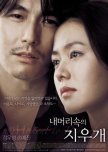
Esta resenha foi útil para você?

Esta resenha pode conter spoilers
Hong Sang-soo, despite his ways and habit of making his films the same in all, but plot, was able to trick the audience into falling into “this is a dream trap”for the ending by showing us a tell, only to have Not Min Jung come into frame. The film was a puzzle that I had trouble figuring out and I didn't expect a happy reunion between the two main characters, especially in the film that usually leads to sad endings or wrong life choices. I believe that Not Min Jung and Yeong Soo meeting at the end signified their pure love for each other. Min Jung drank with many men - wolves - that she met but, like she said, they didn't fit hence why Min Jung was crying at the end. She realised she truly loved Yeong Soo. Her denying that she wasn't Min Jung was her shedding her old attitude and was a restart, something that Yeong- Soo was absolutely desperate for as well. The ending scene was so sweet in many ways. The first scene we saw the two in had the two arguing and unhappy but they climaxed with happy and flushed faces like the happy couple they wanted to be. Esta resenha foi útil para você?

Esta resenha foi útil para você?
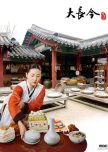
Esta resenha pode conter spoilers
Lengthy Sageuk With Inspiring Character Growth
54 Episodes. This sort of thing likely works best watching weekly as watching the episodes in a short time frame all together highlights some definite flaws. There are plenty of filler episodes that could have easily been cut down or replaced with something different. For example, Jang Geum being sent off to a banishment section of the palace could've been stretched out longer as it seemed too easy to escape when no one else was able to. Have that replace some of the rather empty episodes and you have a more complete drama. The obstacles were a little one note. Jang Geum gets framed for something, she gets out of it with talent. It was basically like that. Some work really well such as Jang Geum, as a child, becoming a Court Lady through her wit and intellect despite not being allowed in the lessons was something that showed how great and worthy she is of her legacy bestowed upon her. However this was an excellent drama overall despite some of the flaws. This drama is split into a few sections, the introduction with Jang Geum’s parents, how they came to meet and her upbringing. Jang Geum’s first days as a court lady, her transition into a Doctor and then her junior into the King's personal physician. The best section of the story was the introduction, as it gives a unique and well written background for the world we are in and an inspiring story regarding Jang Geum’s parents and their sad demise. Jang Geum herself was a wonderful character. Pure at heart, modest, talented and earnest in her actions. Even her relationship with the antagonists is nothing short of respectful on her side. Her and Lady Han’s relationship was a true kinship that won't be replicated anytime soon. They truly felt together and made each other better. Lady Han tested Jang Geum’s skills and got the best out of her, while acting as her Mother would. Jang Geum was able to fill the gaping hole and guilt that Lady Han felt from the death of Jang Geum’s mum, Myung Yi (who is a dead ringer for Lee Young AE at times). The romance between Jang Geum and Min Jung Ho is a slow burn. Very natural and not forced at all - started off with a few Kind words and grew as they met more and more . That's where the long episode number benefits. The antagonists were somewhat understandable over their circumstances. Choi Geum Yeong and Head Lady Choi were forced into being Court Ladies and forced to act against the King by their families, so they are sympathetic initially, but there are vindictive actions in there which make them more hateable.Overall this is well worth watching. It had some interesting stories based on factual history and folklore around Jang Geum. But ultimately this is a story about overcoming backgrounds, gender and other obstacles. This drama expertly delved into the system of the Court Ladies, their roles and expectations. If you want historical accuracy, this is for you.
Esta resenha foi útil para você?
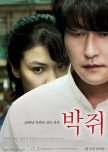
It was quite a joy to watch Song Kang-ho and Kim Ok-bin's relationship develop from humble priest vampire and opressed housewife to the battle for lust and blood. A seductive game of right and wrong. They blended all the combining themes effortlessly with their chemistry.
Esta resenha foi útil para você?

